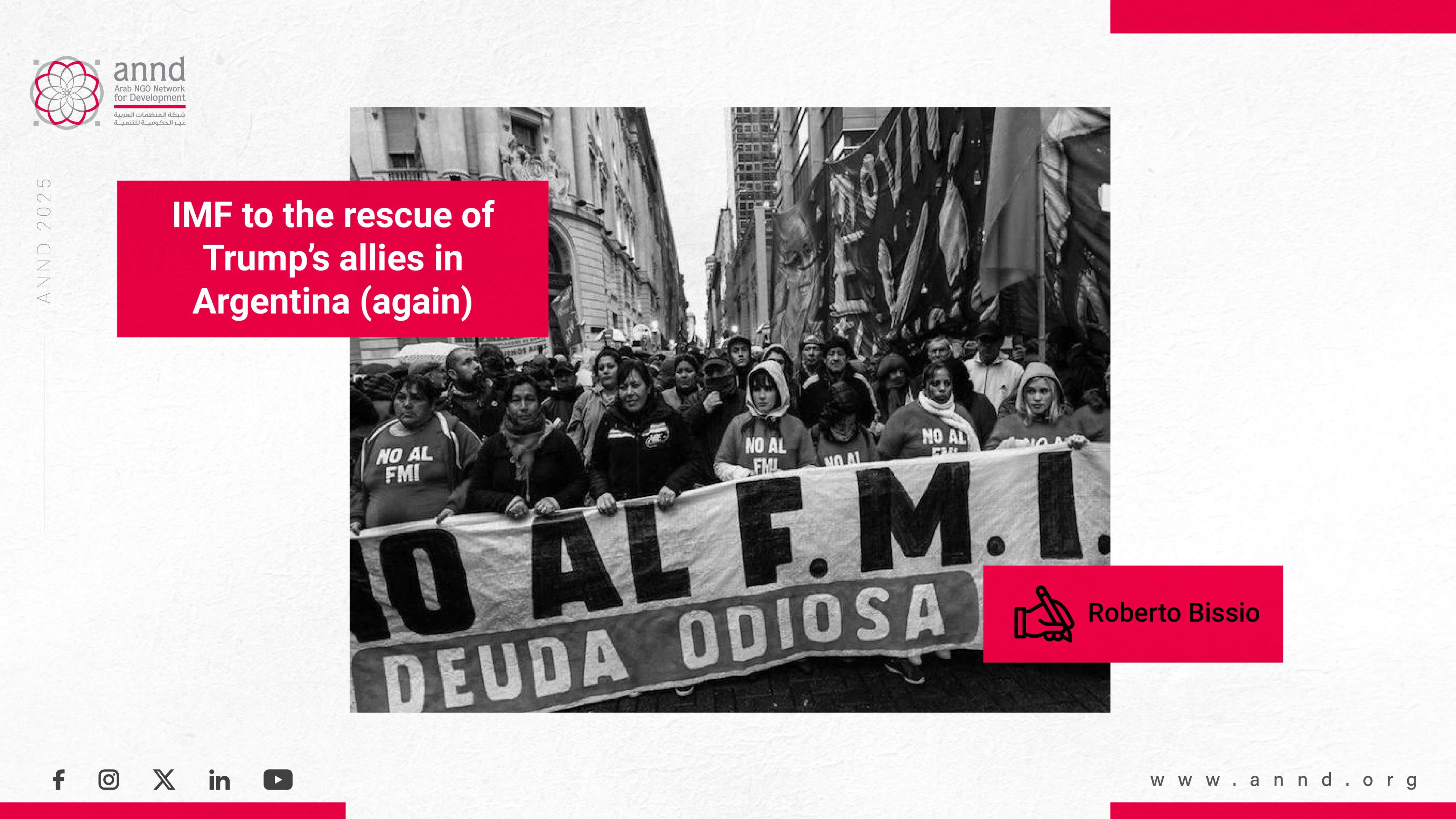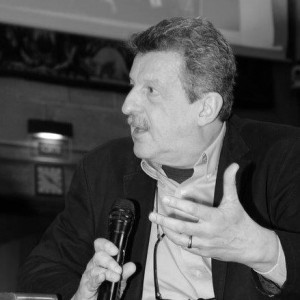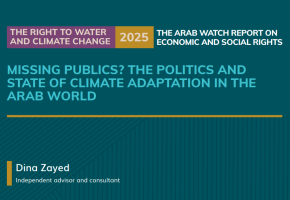
IMF to the rescue of Trump’s allies in Argentina (again) - Roberto Bissio

IMF to the rescue of Trump’s allies
in Argentina (again) - Roberto Bissio
By approving a
new bailout of 20 billion dollars to Argentina last April, the International
Monetary Fund (IMF) extended a lifeline to the controversial president, Javier
Milei, a few days after he gifted Elon Musk a chainsaw during the Conservative
Political Action Conference (CPAC) in Washington, DC. The chainsaw is a symbol
of what Kristalina Georgieva, the IMF's Managing Director, called
"impressive progress in stabilizing the economy" by firing thousands
of civil servants and drastically cutting social security benefits. This
"vote of confidence" by the IMF is not echoed domestically. Street
protests are growing in Argentina, particularly among elderly people who lost
25% of their pensions. The IMF loan was not approved by parliament, as required
by law, which makes it technically illegal.
About one-third
of the global outstanding credit of the IMF is owed by Argentina, which
received 45 billion dollars from the IMF in 2018 (during the previous Trump
presidency), the largest loan in the history of the IMF. Contrary to the IMF’s
own rules, that loan was used to finance a capital flight of some 24 billion
dollars by carry trade speculators. "Carry trade" is done by
portfolio investors that bring dollars into the country, convert them to
peso-denominated bonds with high interest rates, and, after some time, get back
their dollars with a high surplus. That risky bet would mean huge losses for
the speculators if, in the meantime, there is a devaluation (as usually
requested in those situations by the IMF, precisely to avoid capital flight).
However, Argentina was in the middle of its electoral campaign, and avoiding
devaluation was key to getting President Mauricio Macri reelected. Macri is a
billionaire who, as mayor of Buenos Aires, had approved the construction of a
Trump Tower in violation of many urban regulations. Disbursements by the IMF
stopped when the incumbent government lost the presidential primaries in 2019,
leaving Argentina with an even bigger debt and having not solved any of its
problems.
The IMF itself
acknowledged that the program failed and that capital controls should have been
in place to prevent IMF money from being used to fund capital flight.
In January
2022, while hurried last-minute negotiations were conducted to avoid Argentina
defaulting on its 2018 stand-by agreement (SBA) with the IMF, ten former
presidents from Latin America and Spain demanded “that the IMF takes
responsibility for having granted a record loan to the government of Mauricio
Macri of USD45 billion to be paid back in a short time, absolutely impossible
to comply with, in order to benefit him electorally and to limit the next
administrations."[1]
This serious
accusation against an international organization was also signed by several
ex-foreign ministers and senior legislators. After detailed analysis of the SBA
and the IMF’s own ex-post evaluation, prominent legal experts concluded that
"substantive rules that enable the IMF’s functional competence to provide
balance of payments support to its members—set forth in Article I of the
Articles of Agreement—were violated in the SBA in a way that is too manifest to
be open to reasonable doubt, thereby raising suspicion that the SBA’s approval
was ultra vires (beyond the powers)."[2] When international organizations act beyond
their legal capacity, they are deemed to act ultra vires. It follows that any
acts that overstep the powers of international organizations, as determined in
their founding treaties, are invalid and void.
The SBA did not
meet any of its declared objectives. As a result, poverty doubled from 20 to
40% of the population in Argentina, which still owes $45 billion to the IMF,
risking a default. However, the IMF has no appeal or review body in its
governance, except the same Executive Board that approved the loan and its
disbursements. Instead of being held accountable, Managing Director Christine
Lagarde was appointed as the Head of the European Central Bank!
History repeats
itself, and, now, according to the description of former Finance Minister
Martín Guzmán, "we see a massive resurgence of carry trade activity. The
government used the exchange rate as a nominal anchor to contain inflation,
resulting in a sharp real appreciation of the peso. Investors bet heavily on
carry trades. In just 15 months, carry trade returns in US dollars have reached
43%. However, this capital inflow did not translate into sustainable investment
in the real economy. The money went into short-term financial speculation, not
productive capacity. And now we are witnessing a reversal of those flows."[3]
Argentina
strongly demanded (and obtained) an upfront disbursement of 12 billion dollars
from the total of $20 billion approved. Why would the government need so much
money immediately if repayments to the IMF only resume in September 2026?
"The logical inference is that the government seeks immediate liquidity to
fund exchange rate interventions," Guzmán states. Midterm elections in
Argentina are due in October 2025, and the expected result of the inflow of IMF
dollars to Argentina is to avoid a politically disastrous devaluation, at the
cost of more capital flight and deepening the debt burden.
To the world,
the IMF appears once again instrumental in the wishes of its largest
shareholder, the United States. With 16% of the votes on its board, the US is
the only country with "veto power," where all important decisions
require an 85% vote. The remaining 84% of the votes are also complicit by not
putting their act together to confront a blatant use of the IMF for electoral
purposes, exposing it to political risks and compromising its ability to
support the many other countries suffering balance of payment distress, but not
run by friendly chainsaw fanatics.
Elon Musk, Javier Milei and the chainsaw
Disclaimer:
This article was published as part of the newsletter “IMF Policies: No Rule Fits All”. The views and opinions expressed are those of the author and do not necessarily reflect the official position of the Arab NGO Network for Development (ANND).
[1]
https://www.perfil.com/noticias/politica/10-expresidentes-america-latina-pidieron-fmi-asuma-responsabilidad-por-prestamo-mauricio-macri.phtml
[2] Patricio
Ferreira Lima, Karina, The IMF’s 2018 Stand-By Arrangement with Argentina: An
Ultra Vires Act? (January 10, 2022). Available at SSRN:
https://ssrn.com/abstract=
Recent publications

